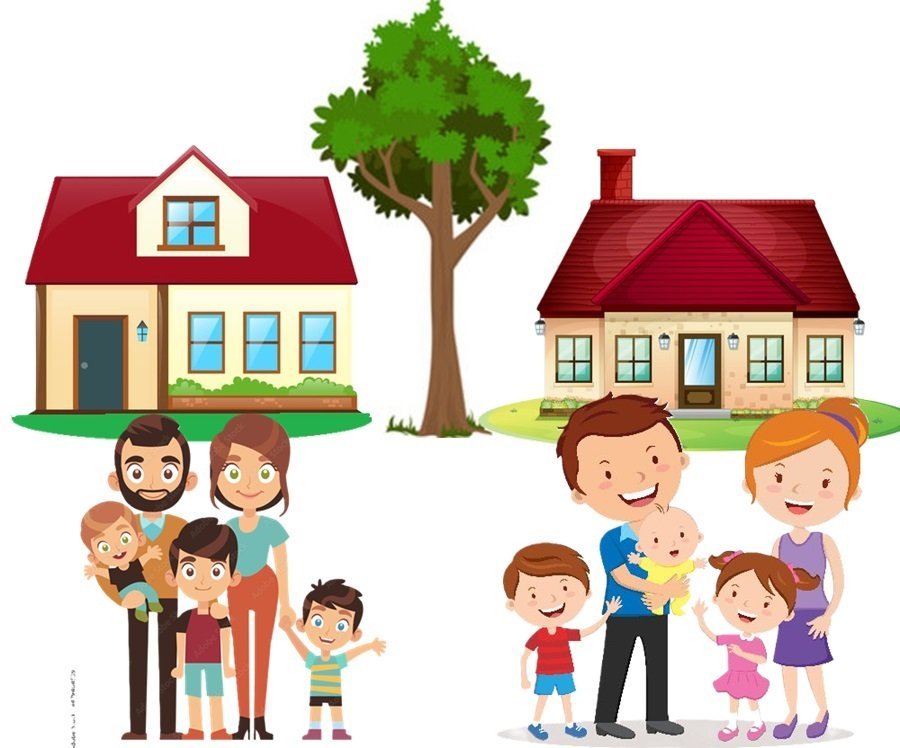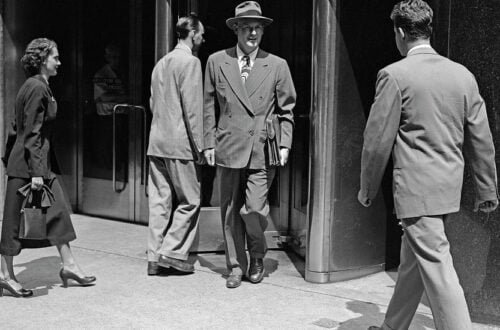
A Tale of Two Families
I learned to be frugal and resourceful from my mother. I kept it up all my life because it makes perfect sense- spend less and have more.
We were very poor most of my childhood, but many people might not have guessed the extent of it, because somehow we usually managed to have what we needed. This was a lesson I learned in a most profound way as a young girl.
In north Texas, my mother had met and married Charles. It was the worst mistake of her life; she had missed all the warning signs. After they were married, his family controlled every aspect of our lives. When my mother couldn’t take it any more, she told Charles we were going to move away from his family. He was probably scared. He had never been away from his family and he didn’t know anything but ranch work, but my mother wasn’t backing down from this. It was her way or the highway.
I have no idea how she decided where we were moving to. Maybe she looked at help wanted ads in a farming magazine or something. But soon, we were hundreds of miles away, living on a HUGE horse and cattle ranch in south Texas. It must have covered hundreds of thousands of acres, because you could drive for miles and still be on it.
The way living arrangements worked was this: single men lived in a bunkhouse not far from the main ranch house.
Married men lived with their families rent free in one of the many little farmsteads scattered all over the ranch. Some of those had to have been built in the 1800s. Propane for heating and gas appliances was provided for free, and electricity was also paid for by the ranch. Each house had it’s own water well. The only thing the tenants had to pay for themselves was a telephone, if they wanted one.
Another amenity- about four times a year, the ranch would have several steers slaughtered, and the meat was divided out among the tenants. This meant each tenant needed a freezer if they wanted that free meat. So everyone had a freezer even if they had to buy one on credit and pay it out monthly.
The little house we got had a barn and a big chicken coop. And of course ample space for a big vegetable garden.
Our family was two adults and three kids. I was the oldest child, with a bit of a gap between me and my brothers.
Maybe a quarter mile or so down the dirt road, our nearest neighbors were Danny and Margaret, and their three boys. The boys were very close to the same ages as me and my brothers.
To summarize, our two families were equal in number and ages, Danny and Charles got the same salary, and both families got the same amenities. Not only were we neighbors for a couple years, Danny and Charles became good friends, so even after we moved to Sugarland, we saw a lot of them. I can confidently say Danny and Margaret had no special expenses of any kind beyond what we had.
I was a keen observer with an analytical mind, and when my mother mentioned a few things about the economic differences between our family and theirs, I began watching for myself. The disparity was striking, and it wasn’t hard to figure out why.
My mother planted a large garden. As produce ripened, she did lots of canning.
One of the perks offered to the ranch hands: a couple times a week, all the cattle feeders needed fresh feed. Whatever feed was left from the last cleaning needed to be removed first. Whoever cleaned the feeders could keep that leftover feed. Charles was the only hand who was interested, so every two or three or four days, he came home with burlap bags of free feed. My mother knew how to take advantage of that boon.
We got a milk cow, three weaned pigs, and a box of baby pullets.
The cow cost nothing to feed. She got the free cattle feed and of course plenty of grazing in our little pasture. When she had a calf, that was sold for cash when it got big enough.
The pigs got cattle feed, plus, my mother clabbered the extra milk for them. When they reached butchering age, she sold two pigs. That paid the processing fee for the third pig, plus left enough to buy three more pigs.
As soon as the pullets were big enough, they were taken off chick starter, and after that, they had cattle feed and lush pasture. The extra eggs, which cost nothing to produce, were sold for cash.
We didn’t need much food from the grocery store, but we needed some. My mother would buy flour, sugar, peanut butter and other staples. And of course toilet paper and shampoo and things. She would also buy fryer chickens to help stretch out the beef to make it last until we got the next batch.
She would cut each fryer in half before freezing, so each one made two meals. A large steak made two meals. A roast made three or four meals. We had meat with most meals, and plenty of good vegetables.
We lived in a region with many pecan groves. One of these groves was owned by the ranch. When pecan harvesting time came around, the ranch owner put out the word to all the tenants that anyone who wanted to pick up pecans was welcome to as many as they wanted. My mother was the ONLY person who responded to that offer. One day while she was in the grove, the ranch owner himself drove up and praised her for her industriousness. He said he didn’t understand why the other wives weren’t interested.
On weekdays, after I was off to school, my mother bundled my brothers into the car, and spent a few hours picking up pecans. Then she would pick me up from school, and we’d go back to the grove and have a couple more hours of picking up before she took the day’s harvest to the nearby pecan broker. On weekends, we were there all day Saturday and Sunday.
The harvest was finally finished, and the money accumulated was welcome. The washing machine had given out a couple months before, and we’d been going to the laundry mat. She bought a new washer. The pickup was in desperate need of new tires. She bought four new ones. She bought a few other things we had need of. She paid cash for everything.
She was frugal in every other way too.
The furniture we brought with us from north Texas was good quality that she had gotten for a bargain price. I vaguely remember some of it was either from an estate sale, or she had bought it from someone who was getting new furniture and selling the old, which was still like new.
She drove into the city every few weeks and went to a bargain basement at a department store. There she was able to keep us well clothed for pennies on the dollar. Part of that was large fabric remnants or partial bolts that she used for making most of our clothes. She also found bargain prices on shoes, linens, and various other needs. Much of this was paid for by money she had saved up from selling eggs.
Overall, for being poor, we did fairly well.
As for Danny and Margaret? That was a whole different story.
In spite of having enough land and outbuildings, they had no interest in gardens and farm animals.
When they got their beef ration, they ate enormous quantities of it every supper and would run out in 3 or 4 weeks. Then they did without for the next couple of months until they got the next batch.
Margaret bought all their groceries. She wasn’t interested in watching sales or seeking bargains or sewing, and bought the family clothes and shoes off the rack at the little stores in the nearby small town.
She made fun of my mother for picking up pecans.
Their washing machine had worn out a long time before, and she regularly went to the laundry mat. They couldn’t afford a new washer.
Their furniture was old and worn. It sagged, had broken springs, the upholstery had seen better days, and the wooden parts were scratched.
They needed new tires, and had to beg Danny’s father to loan them the money so they could buy a set.
Two families, equal circumstances, equal opportunities, but vastly different outcomes. It’s all matter of management and priorities.




